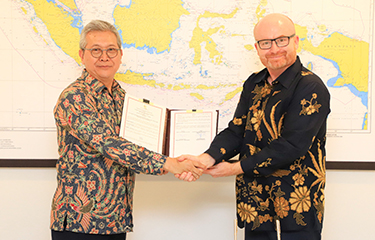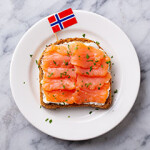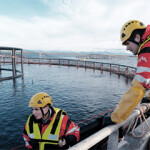MSC and Indonesia join forces for sustainable fishing

The Indonesian Ministry of Marine Affairs and Fisheries (MMAF) and the Marine Stewardship Council (MSC) signed a memorandum of understanding (MoU) focused on increasing the accessibility of the MSC’s market-based program to fisheries in Indonesia.
The agreement covers cooperation in the development of fishery improvement projects (FIPs), sharing of sustainable fishing best practice using the MSC ‘s Fisheries Standard, and capacity building. The MoU was signed by Nilanto Perbowo, MMAF’s secretary general, and Patrick Caleo, MSC’s Asia Pacific Regional director.
“We hope the MSC can assist the Indonesian government in giving global market recognition for Indonesian fisheries products that are free from IUU (Illegal, Unreported, and Unreported) fishing as a premium product,” said Perbowo. “We hope the MSC can push Indonesian fisheries product to the global market.”
Indonesia has some of the world's richest and most productive marine ecosystems. The country is the second largest fish producer in the world and fish products account for 54 percent of the national protein intake.
Because of the importance of Indonesian fish stocks to domestic and global food security, livelihoods, and marine biodiversity, the Indonesian government has been working with local and international stakeholders to overcome some of the challenges facing wild-capture fisheries, such as overfishing. The MSC Fish for Good project, which focuses on Indonesia, Mexico, and South Africa, supports efforts to promote more sustainable fishing practices and actively works with the Indonesian government, small scale fisheries, and local and international stakeholders in this effort.
“MMAF and the MSC share the vision that sustainable fishing is essential to supporting coastal livelihoods, economic growth, and social development. This MoU shows our commitment to work together towards safeguarding Indonesia’s seafood supplies for future generations,” said Caleo.
More than 300 fisheries in 34 countries are certified to the MSC’s standard. The fisheries have a combined annual production of close to 11.7 million metric tons of certified catch, representing close to 15 percent of global marine harvest. More than 36,000 seafood products worldwide carry the MSC blue ecolabel.






Share